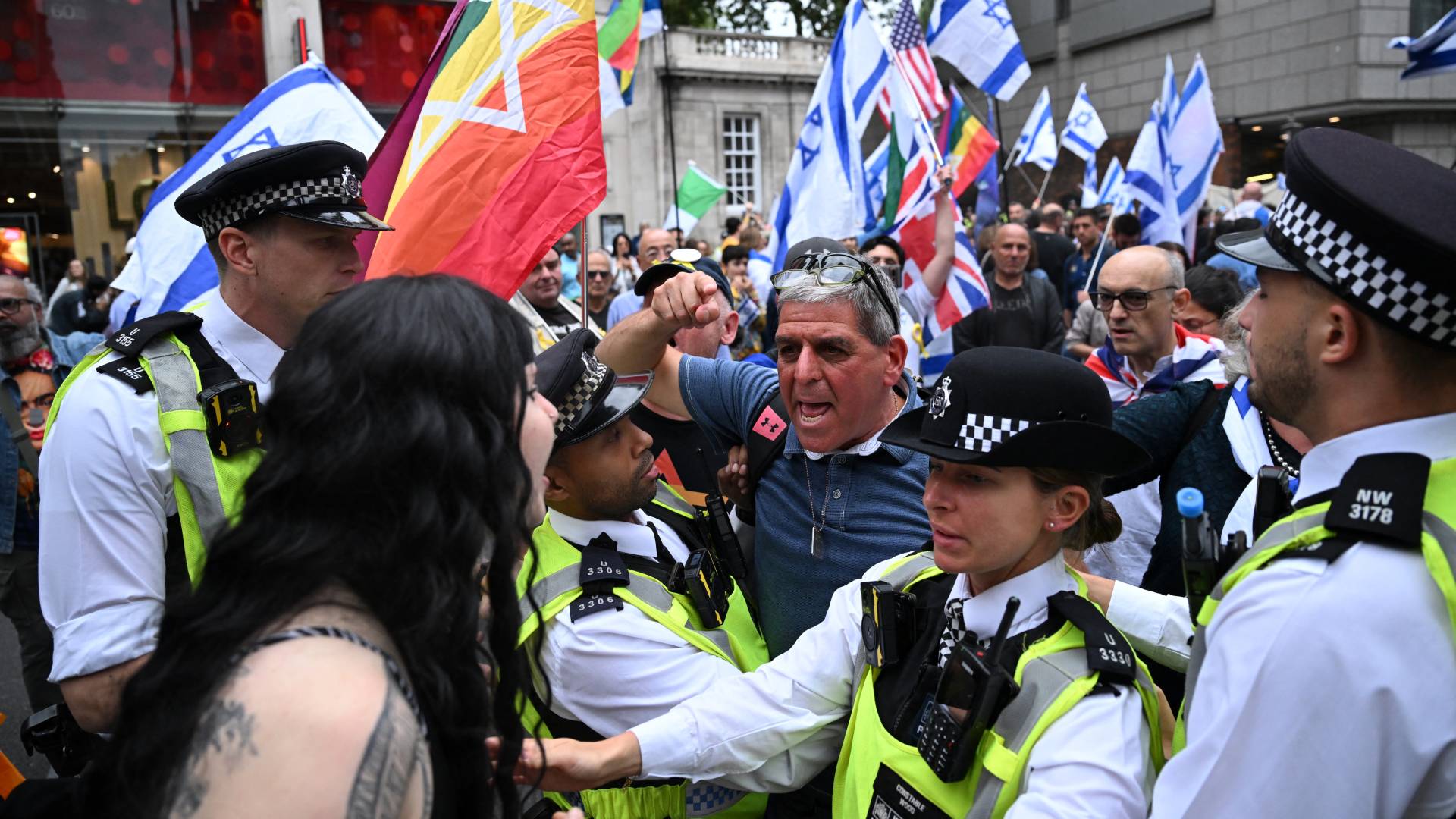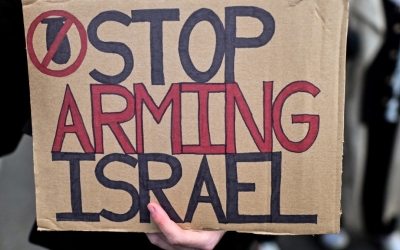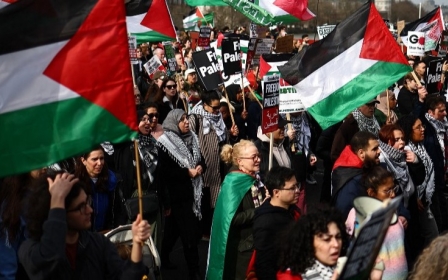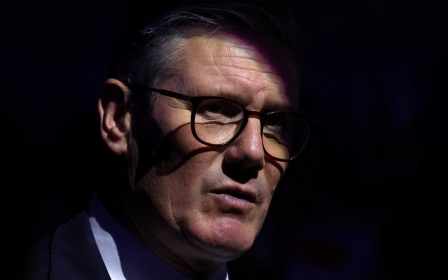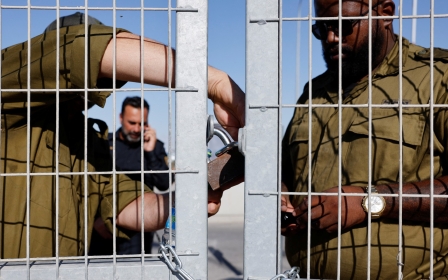UK: Tens of thousands march for Palestine towards Israeli embassy in London
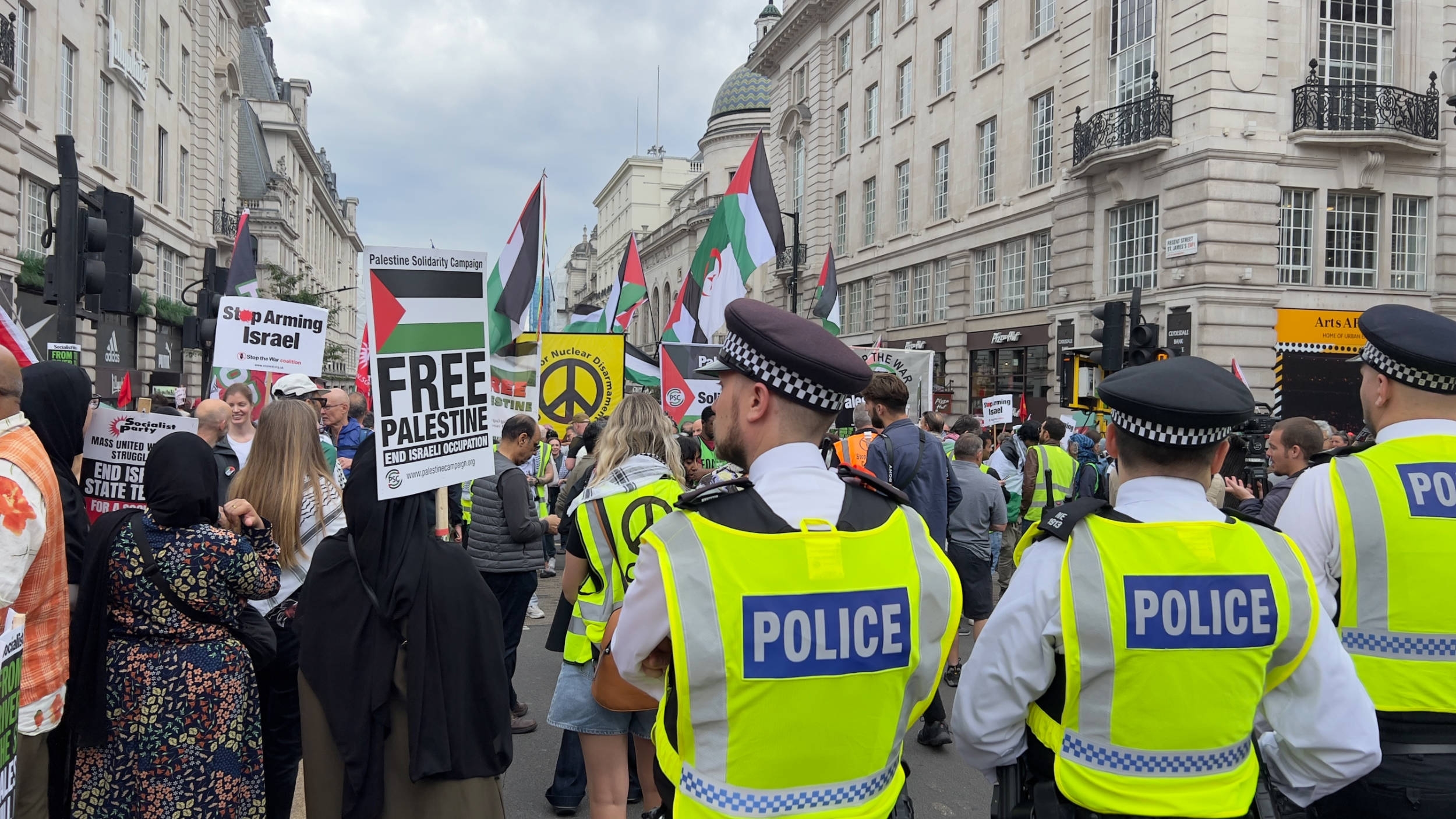
Tens of thousands of protesters marched for Palestine in central London on Saturday as Israel continues its attacks on Palestinians in Gaza and the occupied West Bank.
Organisers held a series of speeches at the start of the march on Regent Street before walking through the heart of west London towards the Israeli embassy in South Kensington.
Flanked by an army of volunteers in green vests, protesters held Palestine flags and placards that called on Britain to impose a full arms embargo on Israel and for the Israeli military to end its war in Gaza.
Iqbal Mohamed, one of the independent MPs elected in July who stood on a pro-Palestine platform, joined the march.
Mohamed told Middle East Eye that Britain’s decision to cut 30 out of 350 arms contracts with Israel and the decision to restore partial funding to Unrwa, the UN agency for Palestinian refugees, was a “drop in the ocean”.
New MEE newsletter: Jerusalem Dispatch
Sign up to get the latest insights and analysis on Israel-Palestine, alongside Turkey Unpacked and other MEE newsletters
“I was in the chamber when the government made its announcement, but it’s only a drop in the ocean and we need to be doing more,” said Mohamed.
“The foreign secretary’s announcement showed that our own legal assessments demonstrate concern that there is a possibility that British arms may have been or likely used to harm innocent human beings.
“Britain could be indicted for possible war crimes and my job as a British citizen and parliamentarian is to ensure we comply with international law.”
Israeli embassy
Saturday’s march was the 18th national demonstration for Palestine since the start of the war last October and the first time a pro-Palestine march has been held in the vicinity of the Israeli embassy in South Kensington.
It was organised by a coalition of organisations, including the Palestine Solidarity Campaign, Friends of Al Aqsa, the Muslim Association of Britain, the Stop the War Coalition and the Palestine Forum in Britain.
“I have back problems but that is nothing compared to what Palestinians are going through right now in Gaza,” said Zaina Beyad, a protester who has attended every Palestine march since the beginning of the war.
The protest, which ended on the edge of Hyde Park, near the Israeli embassy, was met with metal barriers and dozens of police officers.
On the other side of the barricade, a group called Stop the Hate UK held a counter-demonstration to oppose the national march for Palestine.
The group, waving Israeli flags and playing techno music, held their protest in memory of the Israelis killed by Hamas while attending the Nova festival on 7 October.
The group also called on Hamas to return the hundreds of Israeli captives it had taken back to Gaza on 7 October.
The London Metropolitan Police said they made eight arrests in relation to the demonstration. Six of the arrests were made at the pro-Palestine march on offences ranging from "criminal damage, assault and racially aggravated public order offences in relation to signs and a gesture".
Two people were arrested at the pro-Israeli Stop the Hate march on "suspicion of breach of the peace and assaulting police officers," according to the police.
Protest rights
Saturday’s demonstration also came amid a wider row over protest rights after the London Metropolitan Police attempted to impose last-minute changes to the start time of the march.
For the past week, protest organisers had been going back and forth with the police after they imposed an order that stated the protesters would have to march from 2:30pm - two hours after the scheduled start time of 12pm.
Organisers lashed out at the attempts to delay the protest and said it was an attack on their ability to march freely.
The organisers also told MEE that they had informed the police of their intention to march on Saturday a month in advance on 7 August, but were able to meet the police a week ahead after several cancelled arranged meetings.
On Friday, less than 24 hours before the march, the police finally told protest organisers that they would be allowed to march at the initially proposed time, instead of 2:30pm.
Chris Nineham, from the Stop the War coalition, hailed the police’s U-turn as a “major victory” for the Palestine movement.
“We were very concerned when the restrictions were placed on us at such short notice, but glad we have been able to proceed as planned,” said Nineham.
“I have helped organise protests for more than a decade but never seen the level of restrictions imposed on us like I have in recent months.”
Protest organisers praised the move but said the police had not given any explicit reason as to why they had called on them to delay the start of their protest.
Organisers said the police had caused “serious disruption” to their organising efforts and that it had followed a pattern of other instances where they attempted to impose restrictions on their ability to protest.
“When I heard the police had tried to change the times of the protest, it made me more determined to come because our voice matters now than ever before,” Beyad said.
Middle East Eye delivers independent and unrivalled coverage and analysis of the Middle East, North Africa and beyond. To learn more about republishing this content and the associated fees, please fill out this form. More about MEE can be found here.


